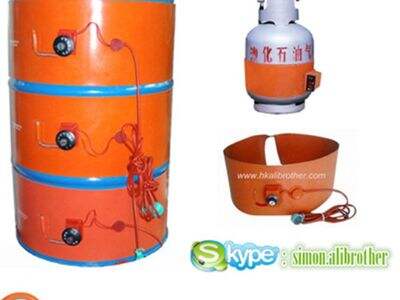Kad mēs domājam par to, kā saglabāt savas mājas vai darba vietu siltas šaurajos mēnešos, mēs bieži vien domājam par tradicionālām veidu. Tie ieskaita centrālos sildīšanas sistēmas, kas silda visu māju, vai telpas siltumgeneratorus, kas var sildīt vienu istabu. Bet vai zināt par augsto alternatīvu? Šis pēdējais variants ir pazīstams kā silikona guma siltumgeneratori, kuri strādā pilnīgi citādi.
Kāda ir starpība?
Silikona guma siltumgeneratori un tradicionālie siltumapgādes sistēmas atšķiras galvenokārt tajā, kā tie ģenerē un sadala siltumu zonā. Konvencionālās siltumapgādes sistēmas vai sagāž degvielas, piemēram, gāzi vai naftu, vai izmanto elektroenerģiju, lai sildītu un cirkulētu gaisu. Šis karstais gaisma pēc tam tiek aizsūtīts istabās caur ventiliem vai radietoriem. Silikona guma siltumgeneratori, no otras puses, veidoti no īpaša veida guma, kas ģenerē siltumu, kad caur to protiek elektriskais straums. Tie tiek pielietoti tieši uz objektu vai virsmu, kas jāsilda, tāpēc tie silda visu, ko pieskaras.
Priekšrocības un trūkumi
Tātad, kādas ir siltumgabalu no silikona caučuka priekšrocības un trūkumi? Viens liels labs: tie nodrošina konstantu siltumu ar zemu enerģijas patēriņu. Tas ir ļoti noderīgi, jo tradicionālie siltumapgādes sistēmas var izraisīt lielas izmaksas, lai tiktu ieslēgtas, īpaši, ja jums vajadzētu sildīt lielu platumu, piemēram, dzīvojamu istabu vai skursteņa. Silikona caučuka siltumgabali var būt tieši uz objekta, ko jūs sildāt, sniedzot mērķtiecīgu siltumu, kas nav nepieciešams pārvietot cauri ventiliem vai cienām. Tiešais sildīšanas process veicina enerģijas taupību un galu galā arī izmaksu samazināšanu.
Tomēr, lai gan silikona caučuka siltumgabalu priekšrocības pārsvarā trūkumus, ir jāņem vērā arī daži jautājumi. Piemēram, tie var nebūt ļoti efektīvi lielāku telpu sildīšanai, piemēram, tādu ar sliktu isolāciju. Isolācija ir galvenokārt svarīga, lai saglabātu siltu gaisu iekšpusē un izslēgtu kalnu ārpusē. Silikona caučuka siltumgabali pieskaras objektam, kuram nepieciešams sildīt, kas nav vienmēr iespējams gadījumos, kad objekts nevar piedzīvot augstu temperatūru. Tas nozīmē, ka jums jābūt uzmanīgam, uz ko tos pielietojat.
Aspekti, par kuriem vajadzētu domāt
Ja jūs domājat, kuru sildīšanas metodi izvēlēties, ir daži galvenie faktori, uz kuriem vajadzētu pievērst uzmanību. Tie var ietvert istabas lielumu; izkārtojumu; cik daudz enerģijas vēlaties izmantot; un kuros konkrētajos objektos vēlaties siltināt. Piemēram, ja jūs sildāt mazāku, slēgtu telpu, piemēram, vannasistabu, silikona guma sildītājs var piedāvāt efektīvāku sildīšanu nekā tradicionālais sildīšanas aparatūras tips, kas mēģina paaugstināt istabas gaisa temperatūru. Uzmanieties par to, kas visefektīvāk risinās jūsu specifiskos apstākļus.
Kad izmantot silikona gumijas sildīšanas elementus
Šeit ir dažas situācijas, kurās silikona gumija siltinātāji jāizvēlas pret konvencionālajiem siltināšanas veidiem. Tas ļauj tiem būt neiesaistīti izmantojami rūpnieciskos procesos, kur nepieciešams siltināt atsevišķus objektus vai materiālus, lai pabeigtu darbību, piemēram, ražošanā vai laboratorijās. Turklāt tie var būt ļoti noderīgi, ja jums vajadzētu ātri un efektīvi siltināt noteiktu vietu, piemēram, veicot remontu vai uzturēšanas darbus.

 EN
EN






































